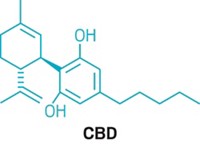Advertisement
Grab your lab coat. Let's get started
Welcome!
Welcome!
Create an account below to get 6 C&EN articles per month, receive newsletters and more - all free.
It seems this is your first time logging in online. Please enter the following information to continue.
As an ACS member you automatically get access to this site. All we need is few more details to create your reading experience.
Not you? Sign in with a different account.
Not you? Sign in with a different account.
ERROR 1
ERROR 1
ERROR 2
ERROR 2
ERROR 2
ERROR 2
ERROR 2
Password and Confirm password must match.
If you have an ACS member number, please enter it here so we can link this account to your membership. (optional)
ERROR 2
ACS values your privacy. By submitting your information, you are gaining access to C&EN and subscribing to our weekly newsletter. We use the information you provide to make your reading experience better, and we will never sell your data to third party members.
Letters to the editor
More on cannabis
This is in response to Ryan Smith’s letter of June 11 in which he questions the legitimate purpose of growing marijuana and, by implication, your writing about it in your May 21 article “Nurturing Cannabis.” Smith’s letter is also misleading and incomplete in discussing the medical uses of cannabis. He does note that cannabidiol (CBD, (–)-trans-cannabidiol) has “medically useful properties” but ignores the fact that THC, (–)-trans-∆9-tetrahydrocannabinol, is sold under the trade names Marinol and Syndros (the generic name is dronabinol). It is FDA approved for the anorexia associated with weight loss in adult patients with AIDS, and the nausea and vomiting that is associated with cancer chemotherapy in adult patients who fail conventional antiemetics.
In April of 2018, an FDA advisory panel recommended approval of CBD for the treatment of two rare forms of epilepsy—Lennox-Gastaut syndrome and Dravet syndrome. There are currently only modestly effective drug treatments for these syndromes, and children with them usually have numerous seizures a day that can lead to intellectual disability and serious injury from falls. Final FDA approval for CBD was announced on June 25, 2018, and it will be sold under the brand name Epidiolex.
Sativex (nabiximols), an oromucosal spray containing both THC and CBD, is sold on prescription in Canada, the U.K., and some other European Union countries to alleviate neuropathic pain, spasticity, overactive bladder, and some other symptoms of multiple sclerosis.
In Israel, the noted organic chemist known as “the (Grand) Father of Cannabis,” Raphael Mechoulam, an emeritus professor at the Hebrew University of Jerusalem, has been instrumental in setting up a medical marijuana program to do research and/or to treat glaucoma, Crohn’s disease, inflammatory bowel disease, pain from cancer and multiple sclerosis, pain in the elderly, appetite loss, autism spectrum disorder, Tourette’s syndrome, asthma, Parkinson’s disease, and since 2004, by the Israeli military to treat posttraumatic stress disorder.
Since the cannabis plant contains over 100 cannabinoids (and hundreds of other compounds), much research still needs to be done to elucidate the medical effects of at least the most common, and also the effects of combinations of them, called by Mechoulam “the entourage effect.” One example is research by Therapix Biosciences using THC and palmitoylethanolamide to treat Tourette’s syndrome.
Your most informative article, “Nurturing Cannabis,” was more than justified. It was also timely and appropriate.
Harvey F. Carroll
Lake Forest Park, Wash.
CORRECTION:
June 4, page 24: The feature story about companies seeking U.S. political backing for an international treaty on hydrofluorocarbons incorrectly stated the position of the business that pro- duces the aerosol tire-inflating product Fix-a-Flat. Parent company Illinois Tool Works hasn’t advocated either for or against U.S. support of the agreement.




Join the conversation
Contact the reporter
Submit a Letter to the Editor for publication
Engage with us on Twitter